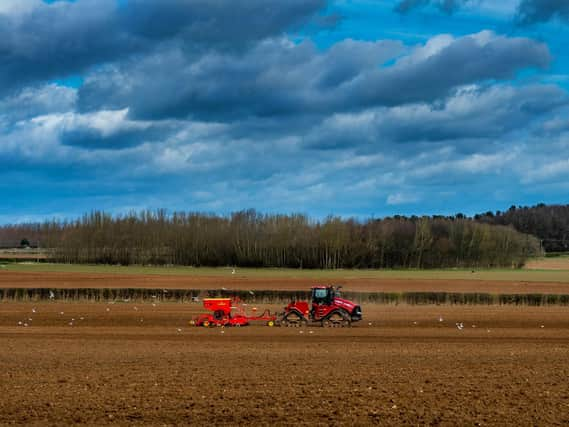Making levelling up work for Yorkshire's rural residents - Anne McIntosh


How will the levelling-up agenda and build back better possibilities work in a rural landscape, particularly looking to the food and farming sectors in the countryside and the role of market towns as hubs in this regard?
I welcome the commitment to send civil servants to Darlington, Leeds and other places. I hope they respond as enthusiastically to that call. To me, growing up near Darlington, it was a big day out, so I can commend the pleasures of Darlington to them without any hesitation.
Advertisement
Hide AdAdvertisement
Hide AdI recently had an excellent briefing from North Yorkshire County Council. I pay tribute to the work it has done in setting up a rural commission and a climate change commission, leaning into the times and recognising where these twin challenges are coming from. We have challenges in rural areas such as North Yorkshire, particularly in transport and connectivity. I welcome all the support the Government are highlighting in this area, and I hope for even more support.
The rural bus network has taken a particular hit because obviously it is very difficult to entice passengers to travel to work on rural buses. The collapse in passengers during the pandemic, with more people working from home, has undoubtedly left a great dent. Broadband and mobile phones are woeful in rural areas, particularly the uplands of North Yorkshire, and that is something I take every opportunity to highlight.
I live in despair about promoting electric vehicles in rural areas. I would like to travel the 240 or 250 miles to North Yorkshire and to think that there would be sufficient charging points to enable me to purchase an electric vehicle, if I could ever afford one, and run it locally before I travel back to London.
These are the everyday challenges we face in rural areas. It is important that, while North Yorkshire has benefited in some regards, being a desirable place to live and work — I think more people will purchase homes there — some negative sectors have emerged. We have been particularly hard hit in that food supplies to the catering sector during the lockdown absolutely collapsed. Also, large numbers of people have been furloughed and there is ongoing uncertainty about whether they will go back to jobs. Structural challenges in this regard remain.
Advertisement
Hide AdAdvertisement
Hide AdI now turn to what we are planning to do, in particular BioYorkshire. BioYorkshire is a very exciting concept. It is a global bioeconomy programme to be delivered by the global leaders in the sector. It is a 10-year programme that will accelerate the translation and application of research discoveries into full-scale biotechnology applications using the region of Yorkshire’s world-class science base to deliver profitable bio-based production of chemicals, materials and fuels, building on the strengths we have in this regard of food, farming and the already well-developed food clusters we enjoy in North Yorkshire.
I pay tribute to BioYorkshire and hope that it will enjoy the match funding required. It will need £430m of government support to lever £570m of co-funding. It is a partnership between the University of York and Fera Science, which I worked closely with for five years when it was based in my constituency and gave frequent evidence to the Environment, Food and Rural Affairs Select Committee, which I had the privilege to chair. Askham Bryan agricultural college will play a key role, as will private sector partners such as Ocado and Nestlé.
The Government made an early and welcome commitment on leaving the European Union to make good the shortfall in university funding for the future. But is this for the foreseeable future — the next five or 10 years — or is it just until the end of a current EU programme such as Horizon, which expires, and the money runs out, next year?
This is extremely important to projects such as BioYorkshire because, for it to succeed, the University of York and the match funding will require this money to be made good by the Government. My specific question is therefore: is it a long-term commitment from the Government that they will make good, on an ongoing, year-on-year basis for the foreseeable future, the shortfall that we have suffered since leaving the European Union, or is it only until the end of the current funding programme, such as Horizon and other programmes, in 2022? To ensure the success of programmes such as BioYorkshire — which I am sure is replicated across the country — we need this match funding from the Government to make good the shortfall now that we have left the European Union.